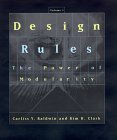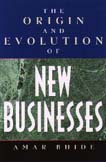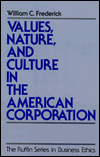| New
Additions
 As
a follow-up to his controversial journal article of the same
title, Robert Putnam makes an overwhelming case that there has
been a diminishment of social capital -- of community
connected-ness -- in this country over the last few decades.
He explains how it has happened and why it matters.
Ultimately, he's optimistic that we can turn the tide. As
a follow-up to his controversial journal article of the same
title, Robert Putnam makes an overwhelming case that there has
been a diminishment of social capital -- of community
connected-ness -- in this country over the last few decades.
He explains how it has happened and why it matters.
Ultimately, he's optimistic that we can turn the tide.
 The
latest book by Jane Jacobs is terrific, and it's written in an
enviably concise and accessible manner . Like Bill
Frederick, Jacobs understands that economies are a part of the
natural world -- and she proposes that they are governed by
inherently natural forces. Like John Seely Brown, Jacobs
understands that economic development can't occur without
co-development. In other words, development can't occur
in isolation. Hence, the historical economic advantages
of cities. The
latest book by Jane Jacobs is terrific, and it's written in an
enviably concise and accessible manner . Like Bill
Frederick, Jacobs understands that economies are a part of the
natural world -- and she proposes that they are governed by
inherently natural forces. Like John Seely Brown, Jacobs
understands that economic development can't occur without
co-development. In other words, development can't occur
in isolation. Hence, the historical economic advantages
of cities.
 John
Seely Brown, director of Xerox PARC, is no Luddite. Even
so, he does us all a favor by debunking infocentric hype.
Context -- particularly social context -- matters. So
does distance. So does community. Technology
changes all of them, in some ways profoundly, but they remain
critical parts of our lives. John
Seely Brown, director of Xerox PARC, is no Luddite. Even
so, he does us all a favor by debunking infocentric hype.
Context -- particularly social context -- matters. So
does distance. So does community. Technology
changes all of them, in some ways profoundly, but they remain
critical parts of our lives.
 This
concise and readable book is one of the most pragmatic
treatments of complexity thinking I've found.
Importantly, it avoids some of the over-simplifications that
mar many other books on the topic. However, to get the
most out of it, it helps to be well versed in complexity. This
concise and readable book is one of the most pragmatic
treatments of complexity thinking I've found.
Importantly, it avoids some of the over-simplifications that
mar many other books on the topic. However, to get the
most out of it, it helps to be well versed in complexity.
 Cyberselfish
is a rant, albeit a pretty entertaining one. Author
Paulina Borsook (a former contributor to Wired
magazine) takes issue with the biological metaphor for
business, seeing it as a veneer for neo-Social Darwinism.
I think she overstates the case, but her characterizations of
the politics of the high tech culture contain the sting of
truth. Cyberselfish
is a rant, albeit a pretty entertaining one. Author
Paulina Borsook (a former contributor to Wired
magazine) takes issue with the biological metaphor for
business, seeing it as a veneer for neo-Social Darwinism.
I think she overstates the case, but her characterizations of
the politics of the high tech culture contain the sting of
truth.
Required
Reading
 Baldwin
and Clark explain the enormous creation of value and the
transformation of the computer industry spawned by the
introduction of the IBM System/360 -- the first modular
computer -- using the lenses of real
options and complexity thinking. Baldwin
and Clark explain the enormous creation of value and the
transformation of the computer industry spawned by the
introduction of the IBM System/360 -- the first modular
computer -- using the lenses of real
options and complexity thinking.
 Highly
recommended! Amar Bhide offers a very attractive
framework for understanding the differences in initial
conditions that give rise to different models of new business
formation. Highly
recommended! Amar Bhide offers a very attractive
framework for understanding the differences in initial
conditions that give rise to different models of new business
formation.
 Read
this book! Clayton Christensen explains how the very processes
that make companies successful can also make them vulnerable
to disruptive technologies. Read
this book! Clayton Christensen explains how the very processes
that make companies successful can also make them vulnerable
to disruptive technologies.
 MacArthur
Fellow and theoretical biologist Stuart Kauffman's ideas on
self-organization. Lots of interesting implications for the
complex adaptive systems ("CAS") that we call
innovation and business. A complexity science classic. MacArthur
Fellow and theoretical biologist Stuart Kauffman's ideas on
self-organization. Lots of interesting implications for the
complex adaptive systems ("CAS") that we call
innovation and business. A complexity science classic.
 This
isn't an easy read, but it is an important book. Bill
Frederick provides us with a framework for understanding the
conflict among three value sets in business: economizing,
power aggrandizement, and ecologizing. As critical as Robert
Jackal (see Moral Mazes below) of
power aggrandizement in corporate America, Frederick shines a
light toward a possible reconciliation of businesses need to
economize with our collective need to ecologize. This
isn't an easy read, but it is an important book. Bill
Frederick provides us with a framework for understanding the
conflict among three value sets in business: economizing,
power aggrandizement, and ecologizing. As critical as Robert
Jackal (see Moral Mazes below) of
power aggrandizement in corporate America, Frederick shines a
light toward a possible reconciliation of businesses need to
economize with our collective need to ecologize.
 If
you are interested in CAS, you'd best acquaint yourself with
the writings of John Holland, the "father of genetic
algorithms." Professor Holland writes concisely, yet
covers a great deal at depth. (I must admit that I struggle
with some of the material.) Hidden
Order is the best, but you should also consider Emergence:
From Chaos to Order. If
you are interested in CAS, you'd best acquaint yourself with
the writings of John Holland, the "father of genetic
algorithms." Professor Holland writes concisely, yet
covers a great deal at depth. (I must admit that I struggle
with some of the material.) Hidden
Order is the best, but you should also consider Emergence:
From Chaos to Order.
[Top]
Highly
Recommended
Amram, Martha and Nalin
Kulatilaka. (1999). Real
Options: Managing Strategic Investment in an Uncertain World.
Boston: Harvard Business School Press. Amram and Kulatilaka
have given us a pragmatic guide to the application of real
options thinking. For those of you who are up to a heavier
mathematical load, try Real
Options: Managerial Flexibility and Strategy in Resource
Allocation by Lenos Trigeorgis.
Dawkins, Richard. (1995). River
Out of Eden: A Darwinian View of Life. New York:
BasicBooks. Dawkins writes beautifully and compellingly. Here,
he provides concise evidence of the power of evolution. Read
all of his books, but read this one first.
Devlin, Keith. (1999). InfoSense:
Turning Information into Knowledge. New York: W.H.
Freeman. Devlin explains how information differs from
knowledge, how communication is hindered and enhanced, and how
information can be better managed, using the scientific tools
provided by situation theory. Furthermore, he does so in a
clear, non-technical, and highly readable fashion. While his
conclusion that "context matters" may at first
glance seem almost trite, Devlin drives the point home in a
fresh, compelling manner. This is an interesting, yet
practical, book -- particularly for us non-specialists.
Hagel, John III and Marc
Singer. (1999). Net
Worth: Shaping Markets When Customers Make the Rules.
Boston: Harvard Business School Press. Predictions regarding
the emerging role of the infomediary. A number of recent
startups have apparently only read selected parts Hagel and
Singer's message.
Jackall,
Robert. (1988). Moral
Mazes: The World of Corporate Managers. Oxford:
Oxford University Press. Social anthropologist Robert Jackall
wrote this analysis of the "patrimonial bureaucracy"
that characterizes the life of corporate managers. While
reading it, I didn't know whether to laugh or cry. It's the
academic version of Dilbert. Thank you David Isenberg for
bringing the book to my attention in your Smart
Letter #22.
Norman, Donald A. (1998). The
Invisible Computer: Why Good Products Can Fail, the Personal
Computer is So Complex, and Information Appliances are the
Solution. Cambridge: The MIT Press. Norman's design
manifesto focuses on the emergence of the networked
information appliance.
Petzinger, Thomas Jr. (1999). The
New Pioneers: The Men and Women Who Are Transforming the
Workplace and Marketplace. New York: Simon &
Schuster. With chapters titles such as The Age of
Adaptation, From Planning to Playing, and Nobody's
as Smart as Everybody, Tom Petzinger's latest book is
irresistible. Besides, the guy is a very good writer. Also
well worth while is a gander at Tom's
complexity reading list.
Shapiro, Carl and Hal R.
Varian. (1999). Information
Rules: A Strategic Guide to the Network Economy.
Boston: Harvard Business School Press. Don't throw away your
economics textbooks -- they are still relevant. Nevertheless,
switching costs, positive feedback, and lock-in are
particularly important characteristics of a networked economy.
Utterback, James M. (1996). Mastering
the Dynamics of Innovation. Boston: Harvard Business
School Press. Understanding and anticipating the relationship
between product innovation and process innovation.
Wilson, Edward O. (1998). Consilience:
The Unity of Knowledge. New York: Knopf. Renowned
biologist Edward O. Wilson makes the case that our world is
organized in terms of a small number of natural laws.
[Top]
|